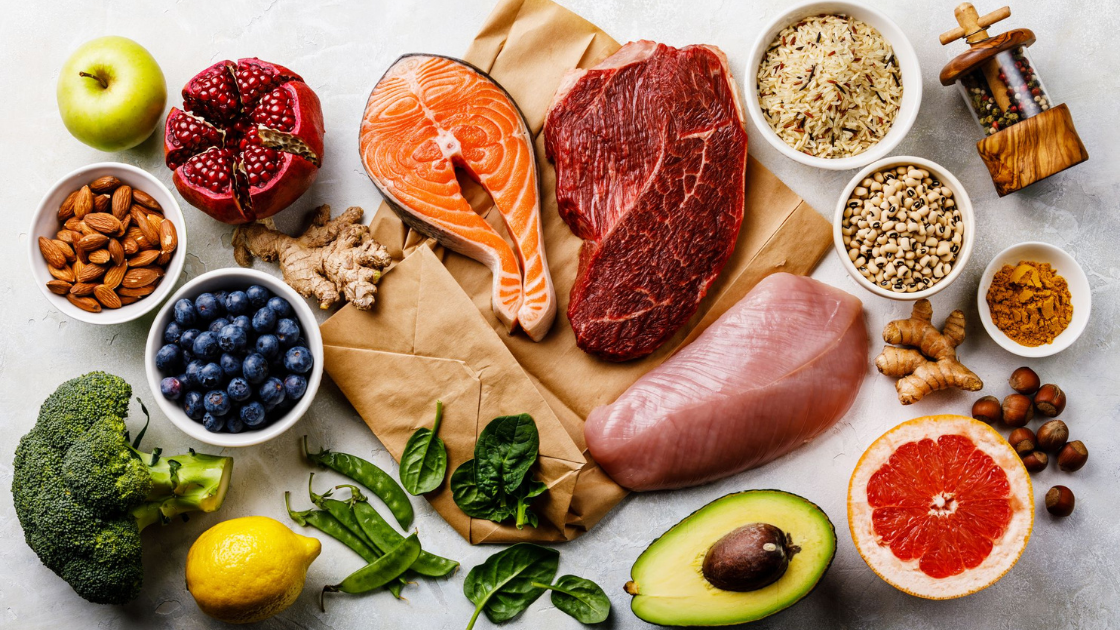Easy-to-eat, easy-to-find, everyday “super” foods to keep eating healthy simple.
1. Melon
The combination of its high water content and potassium levels make honeydew melon effective at maintaining healthy blood pressure levels. As honeydew contains both vitamin C and copper, they promote healthy skin by aiding collagen production and tissue repair.
2. Arugula
If you ever see a salad green referred to as “rocket,” it’s simply another name for arugula or roquette in French. Yet another Brassicaceae along with kale and cauliflower, its delightfully pungent leaves have been cultivated in the Mediterranean since time was recorded. As such, arugula is a perennial favourite in Italian cooking.
Arugula derives a lot of nutritional value from its cruciferous family roots, such as antioxidant benefits from glucosinolates and detoxifying power from enzymes. It’s an excellent source of fibre, vitamins A, C (to boost the immune system), and K (for bone strength), folate, calcium, iron, magnesium, phosphorus, potassium, and manganese.
Arugula also provides high levels of protein, thiamin, riboflavin, vitamin B6, zinc, copper, and pantothenic acid (vitamin B5) for raising good cholesterol levels and lowering the bad. Its flavonoid content has multiple benefits: to prevent cholesterol from sticking to arteries, lower blood pressure, increase blood flow, lower inflammation, and improve blood vessel function.
3. Garlic
Is garlic an everyday superfood? Yes, It IS! Aphrodisiac, currency, food, medicine, vampire repellent – garlic has had many uses throughout the ages.
Garlic contains vitamins C and B6, manganese, selenium and other antioxidants (notable allicin).
More recent evidence-based research suggests garlic may be effective against high blood pressure, cardiovascular disease, cholesterol, colds and some cancers.
4. Spinach
Foods like kale and chard have taken centre stage as greens worthy of the title “superfood”. They’ve rightfully earned their spot in the light, as they are both packed with a wealth of benefits. But in the wake of these lesser-known greens moving towards the front, let us not forget the original green superfood: spinach.
The phytonutrients within spinach are both anti-inflammatory and anti-cancer. Inflammation being a risk factor for cancer means that spinach can help protect the body at a cellular level from a life-long disease.
Raw spinach is a great way to reap benefits, but know that raw spinach contains something called oxalic acid. Oxalic acid can be damaging to blood vessels and can negatively impact people with arthritis and gout. Boiling the spinach can reduce oxalic acid while also allowing you to eat more (because spinach wilts so much with cooking).
Whether you have it in a salad or on the side of your meal, spinach is a superfood that deserves a constant place in the spotlight and your home.
5. Kiwi
Italian researchers found that it reduces asthma-related wheezing, thanks to its high vitamin C content. One kiwi has 110% of your daily requirement.
6. Cinnamon
Once upon a time, cinnamon was more valuable than gold.⠀
Cinnamon has a naturally sweet taste that is devoid of sugar, making it a great addition to foods like plain yoghurt as a dessert or snack. ⠀
Cinnamon can be an effective tool in managing Type 2 diabetes; it can lower your bad cholesterol (or LDL). Cinnamon has antifungal, antibacterial, and even antiviral properties. Consumption of cinnamon can reduce both systemic and specific inflammation. The former is particularly important in the Western world. ⠀
How does such a little spice have so much power?⠀
Many of cinnamon’s fantastic properties come from one substance, something called cinnamaldehyde, which is naturally present in cinnamon. Cinnamaldehyde is the source of many of the antifungal and antibacterial properties that make cinnamon such a great addition to your diet.⠀
7. Salmon
It is true … there is plenty of fish in the sea. If you had to choose just one to put on your plate, though, salmon would definitely be a great choice! The fatty fish is a nutritional powerhouse that’s loaded with good-for-you Omega 3 fatty acids, protein, vitamins, and minerals. It’s for that reason that salmon is known as one of the healthiest foods on the planet. Also, people who eat salmon regularly are much less likely to fall into a slump of depression. Additionally, people who have already been diagnosed with depression and take anti-depressant medications may find adding salmon to their diet useful.
8. Walnuts
Just 14 walnut halves provide more than twice your daily dose of alpha-linolenic acid, an omega-3 fat that’s been shown to improve memory and coordination.
9. Tea
Studies show if you drink tea regularly, you may reduce your risk of Alzheimer’s, diabetes and some cancers. Plus have healthier teeth and gums and stronger bones. How? Tea is rich in a class of antioxidants called flavonoids. Regardless of the variety of tea you choose, maximize the power of its flavonoids by drinking it freshly brewed. If you want to keep a batch of cold tea in your refrigerator, add a little lemon juice—the citric acid and vitamin C in that squeeze of lemon, lime or orange help preserve the flavonoids.
10. Berries
All berries are great sources of fibre - a nutrient that most people don’t get enough of and one that is important for a healthy digestive system. Fibre may help to promote weight loss. Raspberries boast the most at 8 grams per cup—and also contain ellagic acid, a compound with anti-cancer properties. The same amount of blueberries has half the fibre (4 grams) but is packed with anthocyanins. Antioxidants that may help keep memory sharp as you age. A cup of strawberries contains 3 grams of fibre, but more than a full day’s recommended dose of skin-firming vitamin C. Just eat your berries.
11. Grapes
The combination of unique texture and sweet, tart flavour has made grapes an ever popular between-meal snack as well as a refreshing addition to both fruit and vegetable salads.
Grapes are small round or oval berries that feature semi-translucent flesh encased by a smooth skin. Some contain edible seeds while others are seedless. Like blueberries, grapes are often covered by a protective, whitish bloom. Grapes that are eaten as is or used in a recipe are called table grapes and as opposed to wine grapes (used in viniculture) or raisin grapes (used to make dried fruit).
Grapes contain powerful antioxidants known as polyphenols, which may slow or prevent many types of cancer, including oesophagal, lung, mouth, pharynx, endometrial, pancreatic, prostate and colon. The resveratrol found in red wine famous for heart health is a type of polyphenol found in the skins of red grapes.
12. Kale
Kale is low in calorie, high in fibre and has zero fat. One cup of kale has only 36 calories, 5 grams of fibre and 0 grams of fat. It is great for aiding in digestion and elimination with its great fibre content. It's also filled with so many nutrients, vitamins, folate, and magnesium as well.
Rich in vitamins K, A and C, along with other vital nutrients, the health benefits of kale include detoxification, heart support, cancer prevention and so on.
Arguably the most beneficial property of eating kale is its ability to be a powerful anti-inflammatory agent. When you consider the ideal omega-3 to omega-6 ratio, kale is the perfect anti-inflammatory food.
Going hand-in-hand with its anti-inflammatory potency, kale is a marvelous antioxidant food. Of the three main antioxidant vitamins in the world, kale is particularly rich in vitamin C and beta-carotene (the precursor to vitamin A).
13. Beans
High in protein and low in cholesterol, beans of any variety can add a healthy twist to any dish. They're also loaded with fibre, folate, and magnesium, and studies have shown that legumes (like beans) can actually help lower cholesterol and reduce the risk of certain cancers.
14. Apple
Say it with me, people: "Fiber is good." And apples are a great low-calorie source. (A medium-sized apple weighs in at under 100 calories.) Plus, upping apple intake has been associated with reduced risk of cardiovascular disease, certain cancers, diabetes, and asthma.
15. Pistachios
These lil' nuts are hiding lots of protein and fibre behind their earthy flavor and nutty crunch. Plus, they're naturally cholesterol-free. A one-ounce serving of these nuts has almost as much potassium as one small banana.
16. Coconut Oil
Coconut oil is high in natural saturated fats. Saturated fats not only increase the healthy cholesterol (known as HDL) in your body but also help to convert the LDL “bad” cholesterol into good cholesterols. By Increasing the HDL's in the body, it helps promote heart health and lower the risk of heart disease.
Coconut oil contains lauric acid, which is known to reduce candida, fight bacteria, and create a hostile environment for viruses. Many diseases today are causes of the overgrowth of bad bacteria, funguses, viruses, and parasites in the body.
You can replace grains and sugar in your diet with coconut oil as your natural fuel source when you’re sick. Sugar feeds the growth of bad bacteria. Instead take 1 TBSP of coconut oil 3x daily when sick and consume plenty of vegetables and bone broth as well.

